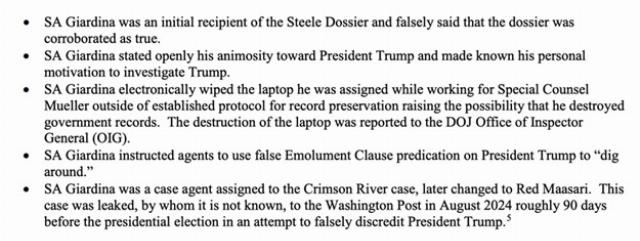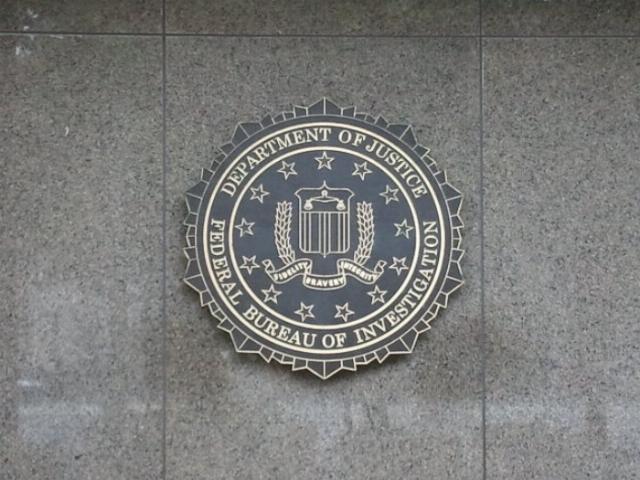How the FBI hid key records from Congress
In a June 5 letter, Senator Chuck Grassley (R-Iowa) accuses the FBI of deliberately concealing politically sensitive records, shielding key figures from scrutiny, and obstructing legitimate congressional oversight. Drawing on whistleblower reports, Grassley claims that the Bureau engaged in more than bureaucratic foot-dragging; he says it systematically used internal tools to bury evidence, protect political allies, and avoid accountability.
At the heart of the controversy is a little known internal designation called “Prohibited Access.” Unlike standard classification levels, this status renders documents effectively invisible — potentially even to those with top-level security clearances. Grassley’s letter warns that the FBI used this mechanism to hide records related to major investigations, including the Mueller probe, raising profound concerns about transparency and abuse of power.
As I’m sure you are aware, the impact of parking records in a way that impedes, or in some cases prevents, responsive records from being produced to Congress pursuant to a valid request and during the course of court litigation, whether criminal or civil, is wide-ranging and potentially catastrophic to constitutional requirements. Indeed, if the FBI has failed to take steps in the past to access records in “Restricted” or “Prohibited” status, the FBI has not fully responded to many years of my oversight requests.
This latest letter builds on Grassley’s ongoing efforts to expose what he sees as the FBI’s systemic suppression of politically sensitive information. On April 29, Grassley sent an eight-page letter to Attorney General Pamela Bondi and FBI director Kash Patel regarding alleged weaponization of the FBI against Trump adviser Peter Navarro. Grassley also sent a newly declassified document on May 28 proving that Fusion GPS contractor Nellie Ohr lied to Congress and was able to do so in part because the FBI, according to the press release, “prevented agents from reviewing all relevant information necessary to perform a full analysis of the extent of Ohr’s false testimony” by using the “Prohibited Access” trick.
In 2023, Grassley released documents revealing “FBI efforts to tamper with far-reaching Biden family investigations.” These documents allegedly reveal “legally protected disclosures from multiple Justice Department whistleblowers warning of improper tampering with key information streams” — streams that “reportedly stymied investigative activity.”
Furthermore, according to the October 24, 2023 letter, Grassley states that the “FBI maintained over 40 confidential human sources” across multiple FBI field offices related to the Biden family investigations. Grassley goes on to say that DOJ and FBI officials “lacked the authority to fully investigate the contents” of certain records.
In 2022, Grassley raised concerns about “Restricted Access” and the “close hold” designations used by top federal law enforcement officials related to Biden family investigations, designations that, critics argue, may have shielded the Bidens from legal scrutiny.
Among the most troubling names to surface in these disclosures is FBI special agent Walter Giardina, who was allegedly involved in politically sensitive cases including the Mueller investigation and in investigations into Peter Navarro and Hunter Biden. Whistleblowers allege that Giardina and others — such as former Mueller team prosecutor Andrew Weissmann — may have destroyed federal records, including phone data and files from Hunter Biden’s laptop. The specifics of the allegations against Giardina, pictured below, are troubling to say the least:

Legal analyst Margot Cleveland asks important questions regarding “Prohibited Access” files in her June 4 column for The Federalist. Her questions go to the people involved and whether the FBI “violated its obligation to provide exculpatory and impeachment evidence to criminal defendants, or failed to meet discovery obligations, because of Sentinel’s “Prohibited Access” functionality,” including:
Notably, there have been audits of the Sentinel system going back to 2006, when the FBI announced that it had awarded a contract to Lockheed Martin Services, Incorporated to “develop the new information and case management system.” In 2012, there was an interim report on the system — “the ninth in a series of reports by the DOJ Office of the Inspector General (OIG).” The published reports focused primarily on the costs (over $451 million projected in 2008), schedule, and system performance of the Sentinel System. Ongoing costs for the system were projected to cost $30 million annually.
The 2012 Sentinel Project report details the background of the system (pp. 19–24). Notable is the summary of the Sentinel System’s search function on page 31. This section on search functionality highlights a user’s ability to “offer multiple ways in which the results of queries and searches can be examined, formatted, saved, and passed on to other users and external entities,” seeming to imply that information can be compartmentalized. However, there is no specific mention of the types of access — “Prohibited Access” or “Restricted Access” — or who controls or has access to them in any of the publicly shared audits or reports.
Grassley’s investigation poignantly illustrates why so many Americans no longer trust the DOJ and the FBI. As cited in Cleveland’s article, Jason Foster, the founder and chair of Empower Oversight, explained the dangers of digital record-keeping and the ability to manipulate records. Empower Oversight is a non-profit, nonpartisan organization committed to combatting waste, fraud, and abuse inside and outside government.
Making a digital record unsearchable effectively deletes it for all other FBI users and creates the potential to taint thousands of FBI investigations, much like the 1990s FBI crime lab scandal did. That scandal sparked decades of consequences, even as late as 2015 when a DOJ review found errors in FBI hair analysis testimony in dozens of death penalty cases. The implications here for the government’s constitutional obligations to disclose evidence could be staggering.
Foster added that the “new FBI leadership has an opportunity and an obligation to come clean” with this information. If public trust in federal law enforcement is to be restored, Americans must be told the truth.
